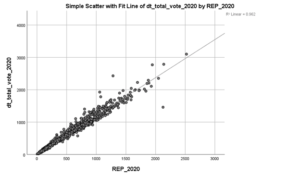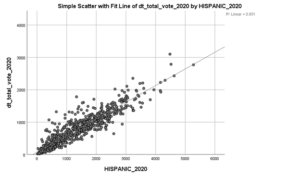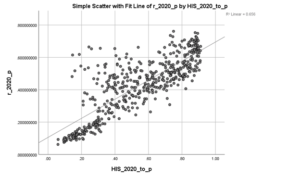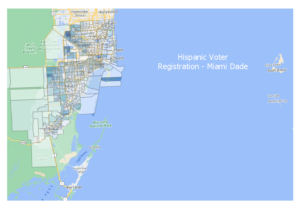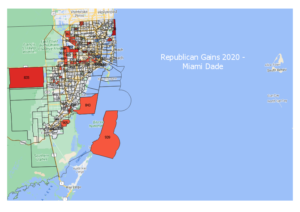Political Research Fridays
One of the most popular segments of this blog was “Political Science Fridays”. It was a blog post each Friday that presented a quick hit of academic research in the areas of political science, political psychology, and/or voting behavior.
At some point, I stopped doing the posts. I was recently asked to start doing them again. So, consider this the first, new “Science Friday”.
The Influence of Identity Salience on Framing Effectiveness: An Experiment.
This is a survey experiment exploring the importance of identities on framing effectiveness.
As the author explains, we all have a few social identities. For example, I am a “father”, “a brother”, “an owner of a small business”, and “an evil political consultant” to name a few. At different points in my life / day those identities will rise and fall in importance to me (salience) depending on the context around me.
The experiment explores priming a frame(s) – “parental identity” or “partisan identity”- and the effect, if any, on the highly polarized issue of climate change.
In this experiment, if you were in the parental frame group, it simply asked you questions about your family – How many children do you have? What ages are your children? “How important is it for you, personally, to make the world a better place for your children?” and “Some parents are worried that priorities that they have as a parent are being threatened by current policies. What about you? When you make political decisions, how important is it to protect your priorities as a parent?” That is it. Four questions.
For the partisan group, one was asked about their political party registration, length of party registration, “How important is it for you, personally, to see the policies supported by your political party implemented?” and “Some voters are concerned that the principles that underlie their party affiliations are being threatened by current policies. What about you? When you make political decisions, how important is it to protect your party’s principles?” That is it. Four questions.
Then each group was presented “neutral” information on climate change, and finally each group was asked questions about climate change – specifically “level of concern about climate change, likelihood of undertaking personal and political behavior in support of climate change mitigation, and support for climate change policies.”
As you can see, fairly simple in design.
Results
“Among Republicans, both the Frame Only and the Parent Prime + Frame treatments significantly increased climate change concern and likelihood to undertake proclimate behaviors, while the partisan prime eliminated this framing effect.”
“The results for the Democrats in the sample were fairly consistent with the hypotheses, with the important difference that priming a partisan identity seemed to increase framing effectiveness more than priming a nonpartisan (parental) identity. “
“Through a survey experiment, I found evidence that identity salience does matter to framing effectiveness. Specifically, presenting a frame about the impact of climate change on future generations increased climate concern and intended proclimate behaviors among Republican parents, but first priming a partisan identity eliminated this framing effect. For Democrats, priming a partisan identity increased climate change concern compared to the control, while priming a parental identity did not lead to any increase in attitudes. Priming partisan identities resulted in significantly more polarized policy support, while priming parental identities resulted in significantly less polarized policy support between Republicans and Democrats.”
Conclusion
As you would guess, our identities at any given time are intertwined. One is never ‘only’ a Republican or ‘just’ a parent. This study suggests our immediate frame of reference activates what information we are receptive to listening to. If we are in a Republican frame of mind, we will think like …. a Republican.
The biggest take away? If you want to talk politics – especially about polarized topics – maybe start by talking about anything other than politics.
DOWNLOAD PAPER.
Type of Paper: Survey Experiment, n=978
four subgroups:
• Frame only group, n=213
• Parent Prime + Frame Group, n=234
• Partisan Prime + Frame Group, n=234
• control group, n=297
Finding(s):
“suggest that political communication on polarized issues is likely to be more effective at building bipartisan agreement when nonpartisan identities are salient.”
Discussion / Additional Questions:
Additional research is needed to measure duration of effects.
Study omitted Independents and No Party Affiliations.
The author used UNICEF as a nuetral presenter of information on climate change – stating “UNICEF is largely viewed positively by the public due to its generally nonpolitical work in promoting the welfare of children around the world (Quesnel, 2004). It was therefore chosen as a neutral message source.” This could be problematic in exploring partisans – in that anything affiliated with the United Nations could be seen as anything other than neutral to a segment of political partisans.
citation: Diamond, Emily P. “The Influence of Identity Salience on Framing Effectiveness: An Experiment.” Political Psychology, 22 June 2020, 10.1111/pops.12669. Accessed 17 Sept. 2020.


